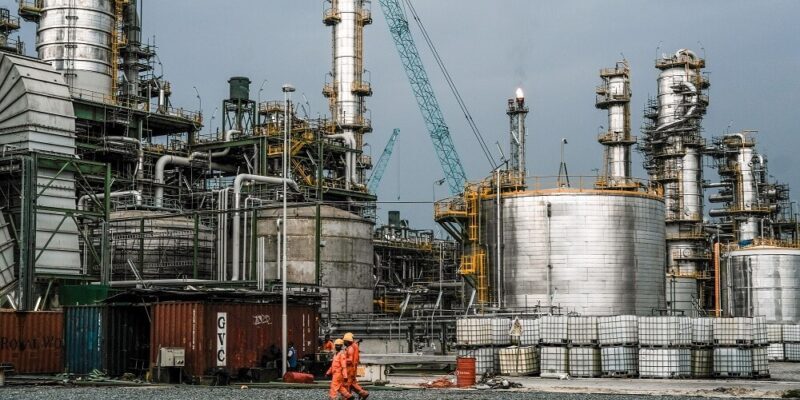Oil marketers have announced that the landing cost of Premium Motor Spirit (PMS), commonly known as petrol, decreased to ₦922.65 per litre as of Friday, marking a ₦32.35 drop from the previous ₦955 per litre price at Dangote’s loading gantry.
This figure reflects several components, including shipping fees, import duties, and exchange rate variations.
“The lower cost of imported petrol often serves as an incentive to dealers, and you can’t fault marketers who choose to import the product,” a prominent marketer shared with Punch.
The Nigerian Midstream and Downstream Petroleum Regulatory Authority (NMDPRA) had previously advocated for a 180-day suspension of fuel imports to encourage reliance on local refining.
However, the dominance of imported fuel persists as marketers increasingly turn to imported alternatives over locally refined products.
The 650,000-barrel-per-day Dangote Refinery, once celebrated for its potential to provide competitively priced fuel, is now struggling to compete with the affordability of imports.
Dangote Petroleum Refinery attributed the recent rise in petrol prices to surging global crude oil prices, emphasizing that crude oil, being the primary raw material for PMS production, directly impacts the cost of the final product.
Marketers assert that no binding agreements require them to prioritize locally produced fuel over cheaper imports.
This lack of obligation further underscores the challenges Nigeria faces in achieving self-sufficiency in fuel refining.
The ongoing preference for imported petrol over local alternatives highlights critical gaps in the nation’s refining capacity and raises questions about the long-term viability of its local refining ambitions.
![]()




